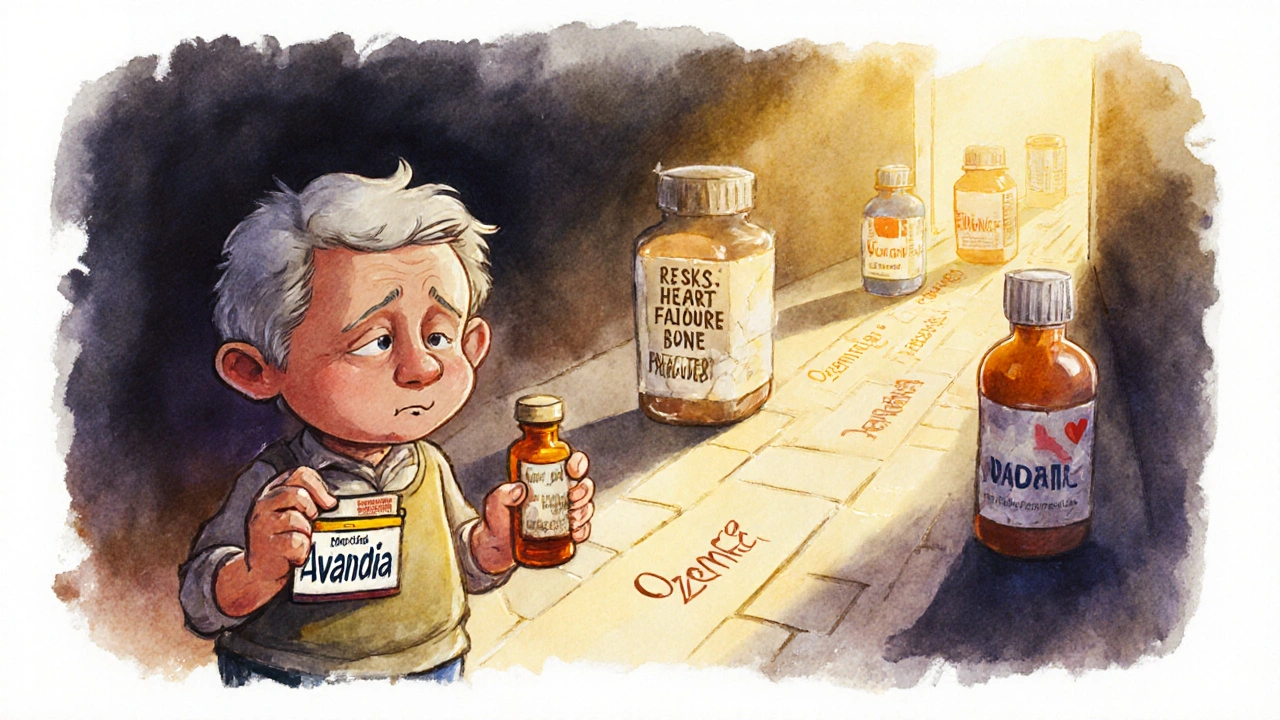Rosiglitazone: What It Is, How It Works, and Alternatives for Type 2 Diabetes
When you hear Rosiglitazone, a thiazolidinedione medication used to lower blood sugar in type 2 diabetes by making the body more responsive to insulin. Also known as Avandia, it was once a go-to for people struggling with insulin resistance. But its story isn’t simple. Rosiglitazone helps your muscles and fat cells use insulin better, which means your pancreas doesn’t have to work as hard to push sugar out of your blood. That sounds great—until you learn about the risks.
Studies in the late 2000s showed Rosiglitazone might raise the chance of heart attacks, especially in people with existing heart problems. That led to strict warnings, restricted access, and many doctors switching patients to safer options. One of those alternatives is pioglitazone, another drug in the same class that works similarly but with a better safety profile for the heart. While both improve insulin sensitivity, pioglitazone hasn’t shown the same level of heart risk in large trials. Then there are other paths: metformin, GLP-1 agonists, SGLT2 inhibitors—each with their own benefits and side effects. Rosiglitazone isn’t gone, but it’s rarely the first choice anymore.
Why does this matter to you? If you’re on Rosiglitazone now, you might be wondering if you should stay on it—or if there’s something better. If you’ve been told it’s not right for you, you might want to know why. And if you’re new to diabetes meds, you need to understand what’s changed in the last 15 years. The posts below cover real comparisons: how Rosiglitazone stacks up against other drugs, what side effects to watch for, and what newer treatments actually do better. You’ll find clear breakdowns of alternatives, real patient experiences, and what doctors are recommending today. No fluff. Just what you need to know to make smarter choices about your diabetes care.
Avandia (Rosiglitazone) vs Alternatives: What You Need to Know in 2025
- Keith Ashcroft
- |
- |
- 12
Avandia (rosiglitazone) is rarely used today due to serious heart and bone risks. Discover safer, more effective alternatives like metformin, SGLT2 inhibitors, and GLP-1 agonists for type 2 diabetes management in 2025.
View more
